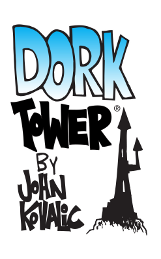Episode 92: The Werepig Demographic
June 6th, 2014 | Robin
 We kick off with Ask Ken and Robin and a Sean Phelan question about asynchronous information dissemination in roleplaying games.
We kick off with Ask Ken and Robin and a Sean Phelan question about asynchronous information dissemination in roleplaying games.
Dire rumors swirl as the Tradecraft Hut looks at disinformation and fear-mongering as a geopolitical instrument, from the Crimea to the ghost dance.
In Ken and/or Robin Talk to Someone Else, Robin chats with Moon Design’s Jeff Richard, who tells tales of the epic heroquest that brought the mammoth and jaw-dropping Guide to Glorantha project back from the mythic realm of Kickstarter.
Finally, Ken, having tackled the topic in a two-part Ken Writes About Stuff entry, dons the Consulting Occultist hat to introduce us to the basics of voodoo.
It’s yo ho ho and a pocketful of doubloons as Atlas Games surveys the seven seas from the crow’s nest that is our coveted anchor sponsor slot. Parrot on its shoulder, it orders up another special deal for Ken and Robin listeners, this time in the form of their innovative game of piratical nautical warfare, Pieces of Eight.
Podcast: Play in new window | Download















Is this the illustration being talked about?
Thanks guys for addressing my question today – you gents covered it like pros, per usual.
Only thing I’ll add, which is an aspect typically just outside the scope of your podcast discussions, is in regards to the subject (in this case asynchronous information) as it pertains to remote gaming software.
Since it’s the software that I have the most experience in by far, I’ll refer to Roll20 specifically. The ease with which R20 facilitates & *keeps covert* GM messages to individual players is by an order of magnitude better than any method not employing such software. In multiple important ways, it changes some dynamics that you two ably focused on from a non-software point-of-view.
For example, there’s no dynamic from seeing a GM note going to someone else, because no one’s the wiser. I’m running an *in-person* campaign in my flat right now using Roll20, where everyone has their own laptop, primarily for its mapping & graphics capabilities – but also for this asynchronous information function as a side bonus. I’ve run whole (brief) scenes with an individual player whose character was alone, while verbally running the other three players, whose characters were together in a different location. This was particularly worthwhile in this situation because the individual PC and the rest of the group were heading in each other’s direction but were having different experiences.
It also swings the pro/con equation of giving specific PC information only to that PC, even when the info is relatively mundane. To wit, while I’m describing a scene to the group, if only one PC notices a particular detail I might shoot it just to them, leaving that player to inform everyone else. As Mr. Laws knowledgeably points out, this simply isn’t worth it when passing notes. However, with a little practice, it’s seamless enough using the software that occasionally adding the dimension of having one PC describing something to the group rather than it coming from the GM is kind of a cool departure from the usual.
Lastly, I’ll throw another topic seed out there for you RPG podcast farmers – rule tweaking. How does the RPG Illuminatus (you) feel about House Rules, including advantages, pitfalls, do’s, don’ts & even nevers.
Thanks again
Sean
My worst experience with asymmetrical information was running a fantasy setting in which there was a race called the Fenri for whom the Moon is as the Sun and the Sun is as the Moon. A mixed party of Fenri and people with normal vision meant describing nearly every scene twice and having to keep track of the time of day according to both solar and lunar time. Fenri seem like a cool idea, but they are a dog to GM for.
TO: Time Incorporated
RE: Preventing Ān Lùshān’s Rebellion
A certain group of sponsors is appalled by the loss of life that attended the An-Shi Rebellion against the Tang dynasty in China, AD 755–763. I think some of them might also be concerned about the cultural and political setback that China suffered from it. How might Ken go about preventing the Rebellion? I think even he might quail at trying to drink Ān Lùshān under the table.
I always try to give the remaining players something to do when I take someone out for a private conference. Look at this handout/decide on what you’re buying from this equipment list/work out your plan for storming the castle – just have an answer by the time I get back.
Great episode. When we were high-schoolers/in college, we did a run-through of the (complete) Giovanni Chronicles that had enormous amounts of private, single character asides with the GM. Somehow this seemed totally awesome at the time, but I suspect that the entire game would have been more fun if we’d all been in the same room for its entirety. I also think it wouldn’t have taken us dozens of session to complete.
I too have a question for the RPG Illuminati:
When running adventures “off-the-clock” (although I get the impression that may not exist for Robin), how do you structure your notes and what tools do you use?
I find I create plain-text documents with enormous amounts of implied hyper texting (List of locations w/ characters and clues and scenes, a separate list of the same characters, a diagram of all of the paths through the content, etc). These seems like the obvious thing to do, but I tend to come up with complicated ways to build mousetraps.
Hi
An interesting discussion about asynchronous information delivery. While there are large parts that I agree with, I do have a number of issues with some points that were raised.
Certainly I think players should know the ground rules of the campaign and everyone should agree to them. However, even if players are almost certain to immediately share information that they receive from the GM I can still see the point of it being given on a one-on-one basis. If nothing else, it allows the player to deliver the information in the way that their character would, to roleplay it. In my experience you need to establish this first, as players often will simply recite any information they are given. But if the pre-existing agreement is that such asynchronous information delivery is an opportunity for roleplaying, if only in the delivery, than I find it more satisfactory than by-passing the player.
Different modes work better with different games. As was well-noted in the discussion, asynchronous information delivery is often useful, almost necessary, in PvP games. It, again as noted in the discussion, is far less suited for many (probably most) other game types. In most games the players are a cohesive (more or less) unit, and the foes are external. This applies, for example, to the espionage type games mentioned in the discussion, where leaving one character in information black-out out while the others go about the mission is rarely (if ever) going to be a happy roleplaying experience.
However, there are other types of games where asynchronous information can work. Take a game based around emotional and psychological issues, where the focus (or at last one of the main foci) of the game is the characters having emotional and psychological issues to work out with each other. In such a game, not knowing exactly what is going on with another player, or where two other players are with their issues, heightens the dramatic tension. Having it all laid out deflates that tension.
In general, this relates to the source of conflict within a game. If the source of conflict is external to the party, as is the case with most games, then generally asynchronous communication does not help (except to provide roleplaying opportunities as noted above). In games where the sources of conflict are more internal, to the player and party, asynchronous information can help and be often necessary. Just as in an externally focussed we don’t tell players from the start all the details about who the main foe is, which NPCs are working for them and what the best path to their lair is, in an internally focussed game I don’t tell players all the details of the emotional and psychological state of the other characters. Nor should they see every development along the path to the climax.
A game does not have to be PvP to have as one of its foci such internal stresses. They can stretch from soap opera to highly charged psycho-drama. One other aspect of such games is that the players are more able to advance their parts of the story in the absence of the GM. In an externally focussed game, in the absence of the GM (for example, the GM is off talking to one player), the other players may be able to continue roleplaying their characters, but the source of the conflict (the GM) is absent, so progressing the story is tough. In an internally focussed game (and not just PvP) players can keep advancing the story in the absence of the GM. With one GM and five players you can have three separate pairs, each one roleplaying and developing the plot separate to the others. Requiring everyone to be present at every exchange would slow down play, stop people playing their character while they watched others play theirs and miss out on opportunities to heighten tension. If your source of conflict is internal then less than full information is just as important as keeping some mystery around the external conflicts in a game that has those.
Now I’m happy to admit that a lot of what I’ve talked about above relates to very particular types of games. Roleplaying games are (happily) diverse and we need to choose the tools that are appropriate to the game in hand. For some games (and not just PvP) I think asynchronous information delivery is not only useful, but central.
Even with these disagreements I do agree with a lot that was said – thanks for the interesting and thought-provoking discussion
Michael
Thanks for doing the interview with Jeff! I’m one of the many backers of the kickstarter and I’m definitely looking forward to my 6 kilos of fun. Overall I think the backer community has been very understanding that the project as funded was far larger than the initial timeline allowed for – I haven’t seen anyone be upset on the timeline.
Hopefully this podcast will get some more people interested!
I think the discussion of asynchronous information was very helpful – as I discovered to my chagrin in a Trail of Cthulhu game that felt more like Paranoia because of too much secret information. It’s definitely a strong seasoning during a campaign and one not to every player’s tastes.
On the note of campaign anecdotes, it has been a while since the two of you elaborated on your own home games. How did Robin’s “Greasepaint” DramaSystem game end up? Have the Red Shirts maintained their no death streak in Ken’s Coda game?